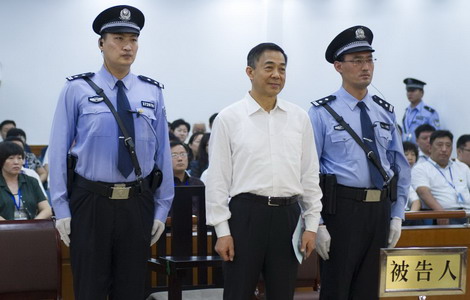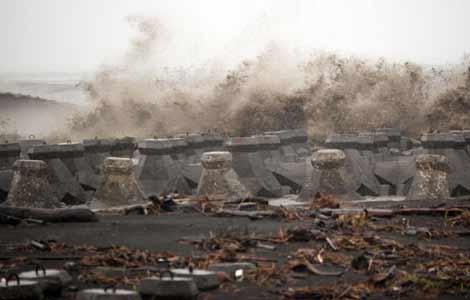Another 2008?
Updated: 2013-09-22 15:08
By Lan Xinzhen (bjreview.com)
|
||||||||
Finally, investors will be provided with more alternatives to distribute financial assets.
Lian Ping, chief economist of Bank of Communications, said that the expansion of the pilot program would enhance asset liquidity, for banks can resell loan assets to other investors and have more funds to inject into assets with higher rates of return. "With the credit asset securitization, the quality of bank assets will be improved, and fewer restrictions will be imposed on the assets-to-securities process. In this way, banks will face less pressures of replenishing capital," Lian said.
Moreover, banks can earn non-interest income by reselling loan assets for themselves or on behalf of other financial institutions, which will improve revenues.
From a macro perspective, the lending quota after selling securitized assets can be granted to the weaker parts and key fields of the real economy, especially in small and micro-sized businesses, and in agriculture and infrastructure. By the end of July, the balance of yuan-denominated loans had amounted to 68.78 trillion yuan ($11.24 trillion), two thirds of which, or 45.85 trillion yuan ($7.49 trillion), could be securitized, Lian argued. Even securitizing a small portion can result in impressive yields.
Risk prevention
Credit asset securitization is a double-edged sword, just as the 2008 subprime crisis has shown. Zhao Xijun, a professor from Renmin University of China, holds that in the context of an economic slowdown, loans in some areas were faced with default risks. Therefore, identifying the quality of ABS products is key.
As to how to ensure China's credit asset securitization would not incur a subprime crisis like in the United States, the PBC suggests including high-quality credit assets into the program.
Currently, credit assets that may undergo securitization include credit loans, guarantee loans, small and micro-sized business loans and auto loans.
The State Council executive meeting on August 28 also called for strict supervision of securitizing credit assets and that the functions and responsibilities of trust companies and accounting firms should further be made clear in this regard.
Wang Guogang, an expert from the Institute of Finance and Banking under the Chinese Academy of Social Sciences, said enterprises should be given enough freedom in choosing credit asset securitization as a financing channel, but he is worried that local governments may interfere in the process. Since the Central Government is trying to tighten the issuance of local bonds, local governments may resort to re-securitization to get new funds, which could further plague these governments, many of which are faced with crippling debt. Strict precautions should also be taken against excessive securitization; otherwise China could face a U.S.-style subprime mortgage crisis, said Wang.
Furthermore, the ability of enterprises to repay decides the quality of ABS products. Information about ABS products, such as gains and losses, defaults and risks, should be published regularly, said Wang.
"That way, investors can spot and guard against risks by analyzing the quality of ABS products as well as referring to the credit rating of issuers."

 In pictures: Nairobi mall shooting spree
In pictures: Nairobi mall shooting spree
 Bo Xilai gets life in prison
Bo Xilai gets life in prison
 Liaoning carrier completes its furthest sea trial
Liaoning carrier completes its furthest sea trial
 Milan Fashion Week
Milan Fashion Week Oktoberfest kicks off in Germany
Oktoberfest kicks off in Germany
 China, US applaud improvement of military ties
China, US applaud improvement of military ties
 Two family-style eateries are where animals roam
Two family-style eateries are where animals roam
 China braces for super typhoon Usagi
China braces for super typhoon Usagi
Most Viewed
Editor's Picks

|

|

|

|

|

|
Today's Top News
Bo Xilai gets life in prison
China braces for super typhoon Usagi
New Sino-US ties sought
Explosive criminal cases drop in China
One Chinese killed in Nairobi attack
China sees drop in donations
Charges against Saudi princess in US dismissed
Trending news across China
US Weekly

|

|





